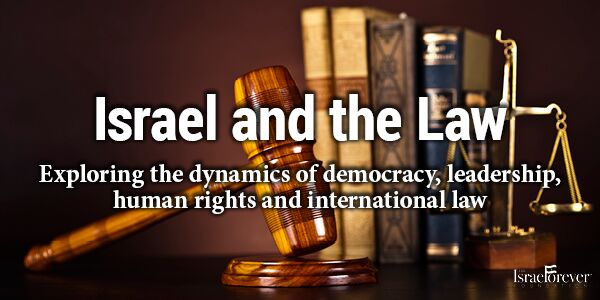Diaspora Jews and Israel’s Jewish Democracy: A world-Jewry’s perspective

The Jewish People Policy Institute conducted a study of the views of Jewish groups with a significant connection to Israel by initiating some 40 discussion groups and seminars with the participation of engaged Jewish community members around the world, through questionnaire responses, and analysis of research on the full spectrum opinions on the subject, including those of Jews who are distanced from Israel and/or organized Jewish life in the Diaspora. The findings arising from this process served as the basis for an integrated summary discussion at a conference held in Glen Cove, New York (March 11-12, 2014) attended by senior representatives of the Jewish leadership in the United States, rabbis, public intellectuals, and academics.
In its summary of the study, they outline that “the ambiguity inherent in the precise definition of "Jewish and democratic" is perceived by many as an advantage as it makes it possible to maintain partnership and avoid factionalism and division.” It claims that “A sharpening of the concrete tensions between "democracy" and "Judaism" shows that there are two camps among the majority who generally see these values as congruous: those who see Israel's democratic identity arising from the state's Jewish foundations, and those who emphasize the opposite arrangement. This finding is expressed in the way in which the two camps examine and develop their opinions with regard to the practical dilemmas that characterize life in a "Jewish and democratic state."” Moreover, since democratic values are considered "Jewish values” by a large percentage of the Jewish world, “actions that erode Israel's democratic values are seen as detrimental to Judaism and to the definition of Israel as a Jewish state.” Consequently, if Israel is not a liberal democracy, it is believed that its attractiveness to many Diaspora Jews will erode.
Any analysis of this issue must highlight the face that “many Diaspora Jews recognize the difficulties and constraints Israel faces given the regional hostility and security threats. At the same time, the majority does not consider this reality, and the fact that Israel's neighbors do not adhere to principles of democracy and human rights, as justification for lowering the high values bar Israel is expected to maintain. The regional reality also does not grant Israel immunity from criticism. Criticism heard in the Diaspora on aspects of Israel's conduct in Jewish matters is often based on arguments rooted in democratic values, just as criticism of aspects of Israel's conduct in the democratic field are often based on arguments rooted in Jewish values. This shows the high correlation between the two concepts as perceived by the majority of Diaspora Jews (for example, the criticism of the Orthodox monopoly in Israel and the deprivation of other streams is largely rooted in arguments based on democratic values).

The debate over Israel's identity as a Jewish and democratic state showed that Diaspora Jews have a variety of expectations of Israel, including:
o That Israel be pluralistic;
o That Israel strive for a reality in which it does not rule over the Palestinians;
o That Israel put an end to the Orthodox monopoly over Jewish life and give equal standing to all Jewish streams;
o That Israel avoid imposing religious norms on its mostly secular civil society;
o That Israel prevent dissipation of its Jewish character by strengthening its citizens’ knowledge of Jewish history, traditions, and values.
Diaspora Jews, however, look at Israel's identity in their own unique ways:
1. Israel's character has significant influence on how "Judaism" is regarded around the world by Jews and non-Jews. For example, it is likely to affect the degree of the young generation's devotion to its Jewish identity, and at the same time is likely to affect attitudes of non-Jews toward the Diaspora Jews who live among them.
2. Diaspora Jews are members of a minority group in their home countries; in Israel, Jews are the majority. This distinction is relevant to the great importance that Diaspora Jews attach to minority rights in Israel and to human rights in general.
What right do Diaspora Jews have, however, to be heard by Israel and her lawmakers, or by the Israeli society as a whole? The growing assertiveness in expressing criticism of Israel has made this a dominant issue, one that is often negatively charged, particularly on subjects related to Israel's Jewish identity. Many are concerned that Israel's actions or policies and its world image have an impact on Diaspora Jews' security and wellbeing. However, the discussion has a strong tendency to be negatively-charged, overly biased and lacking foundation in consistent facts.
While Diaspora Jews wish Israel would consult with them on a regular basis on issues close to their hearts, there is little reciprocation ie Israel is never included in discussions related to the goings-on of Diaspora Jewish life. Morever, significant numbers of Jews and Jewish communities and organizations have put their disagreements with some of Israel’s policies at the center of their relationship with and representation of Israel to their members and constituents. In doing so, they have diminished any potential for including their perspectives which are too often drawn from misunderstand, cultural differences, language barriers, personal political bias, and their reliance and belief in propaganda and lies disseminated against Israel by her enemies and naysayers. This, in turn, diminishes the potential productive result that one-sided consultation would strengthen solidarity between Israel and the Diaspora unless a mutually-beneficial form of communal engagement could be found.









Leave a Comment on Israel Forever